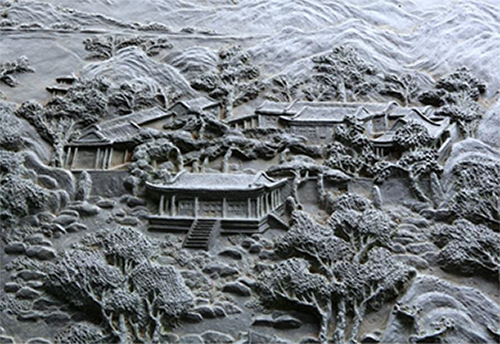Chen Zhen
Jardin mémorable
Shangai 1955 – Parigi 2000
Chen Zhen is one of the earliest installation artists in China. Born in Shanghai, he grew up during the Cultural Revolution (1966–1976) and since a very young age he became interested in the links between traditional Chinese philosophy and Western culture
Resume navigation
Shangai 1955 – Parigi 2000
Chen Zhen is one of the earliest installation artists in China. Born in Shanghai, he grew up during the Cultural Revolution (1966–1976) and since a very young age he became interested in the links between traditional Chinese philosophy and Western culture. Diagnosed with a rare medical condition autoimmune hemolytic anemia at the age of 25, Chen spent most of his artistic career fighting this deadly illness, which had also become an important inspiration for his works.
After emigrating to Paris in 1986, Chen Zhen abandoned his early work in painting in favor of mixed media installation. His pioneering works, using the concept he called “open sculpture”, quickly gained international acclaim. His work developed according to a transcultural school of thought, a concept that the artist called ‘Transexpérience’, based on the relationship between Man, consumer society and Nature.
The installation is inspired by an episode in Chinese history, between 1747 and 1759, when Emperor Qianlong had European-style buildings and monuments built in his park along with typically Chinese ones. In October 1860, the Anglo-French troops and the forces of the European allies sacked and burned the park. Jardin Mémorable is a metaphor to denounce this truly sad page in history. The extreme beauty of the garden, once a concrete proof of the fabulous meeting and collaboration between the two worlds, has become a legendary ruin. Jardin Mémorable wants to revive this lost beauty, which could one day turn the world into a “human garden”.
